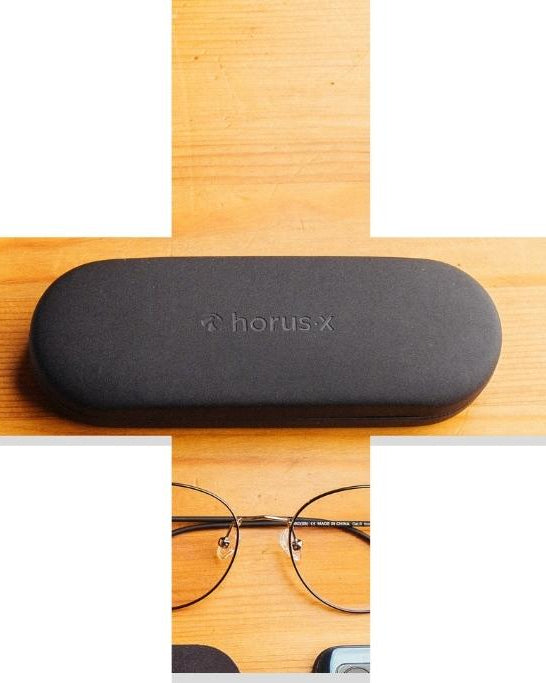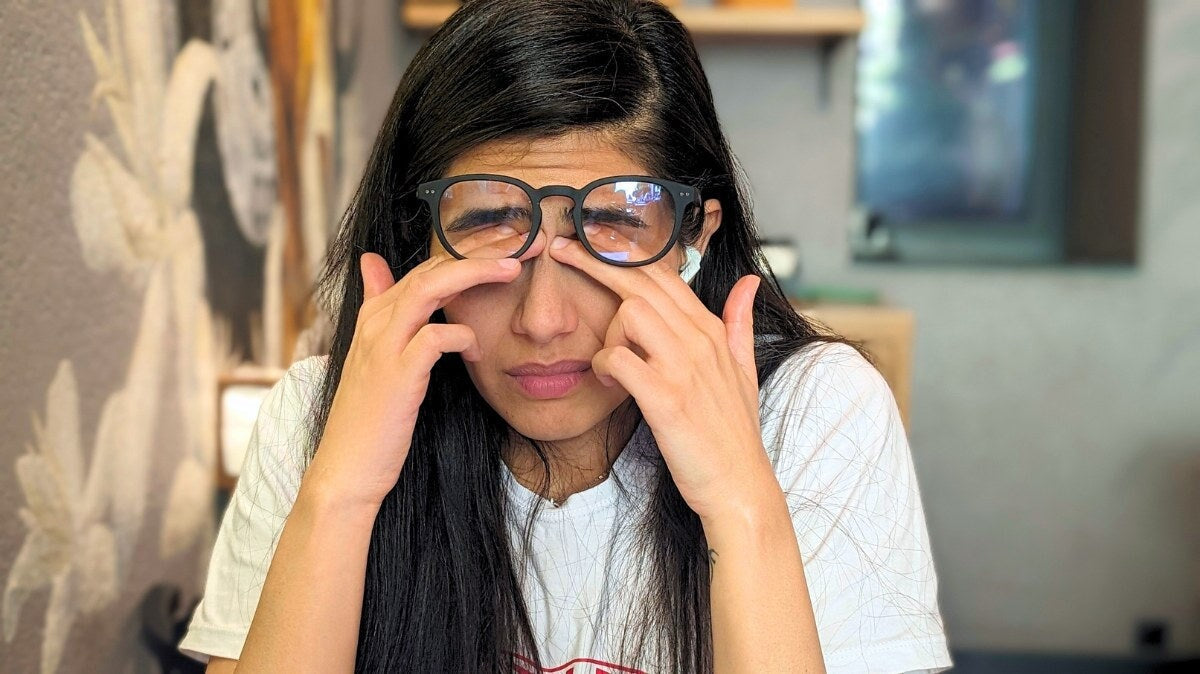If you’re perpetually online, phone glued to your hand, doomed to scroll until the early hours of the morning, or watch just one more Tik Tok video, then you might be addicted to your phone.
Don’t worry, a lot of us are. The question is: how to stop being addicted to your phone?
Between social media, apps, games, emails, work calls, and just plain boredom, our smartphones have become a real addiction.
Luckily, there are some things you can try to lessen your time on your device.
The truth about cell phone addiction

The problem nowadays is that phones are so smart you can literally do everything on them. They’re a way to communicate, share memories, take pictures, play games, watch videos, among so many other conveniences. Even simple things like navigating in an unfamiliar city are done on your phone.
If your phone is almost an extension of your hand or you feel lost when you don't have it with you, you're probably suffering from nomophobia. This is when you’re dependent on your phone and have a fear of being deprived of it; in other words, smartphone addiction.
Amount of time spent on phones: The stats
The amount of time we spend on our smartphones is increasing yearly. In 2024, the average US user spends 3 hours 39 minutes on their phone per day and check it around 58 times.
That’s less than the global average of 4 hours and 37 minutes but it’s still dramatic enough; especially when you factor in time spent staring at other screens. Especially when over half that time (2 hours 14 minutes daily) is spent on social media.
Turns out we’re all victims of hyperconnectivity.
Why are we so addicted to our phones?

You might wonder why you’re so addicted to your smartphone that it’s a struggle to disconnect it from your hand.
It turns out we have dopamine to thank. This neurotransmitter found in the brain is called the happiness hormone and is associated with pleasure and gratification.
When you use your smartphone, and particularly, social media, it releases dopamine into your brain giving you a feeling of wellbeing.
Basically, as soon as you post a photo on Instagram for example, and start receiving likes and comments, your brain interprets this as gratification. This gives you a direct feeling of satisfaction and makes you want to repeat the activity.
That’s why we get so addicted to social media, we’re constantly seeking that next rush of happiness.
On top of that, they provide a kind of social interaction and approval that also triggers the release of dopamine.
Another reason is the aesthetic appeal of a lot of applications, designed to make it harder for our brains to switch off. They're also always evolving, with new features and regular updates; enticing you to keep checking back.
All this novelty arouses our curiosity and once again releases dopamine, making us want to increase our smartphone usage even more.
The dangers of smartphones

Although our smartphone has become an indispensable accessory, it carries its own risks and addiction to anything can be dangerous.
It can have many negative impacts on our health, including:
- 😴 Sleep disorders: The blue light emanating from cell phone screens strongly disrupts the production of melatonin, the sleep hormone essential for a good night's sleep. Checking your phone in the evening before bed and at night can cause difficulty falling asleep and insomnia. So, try not to doom scroll on Tik Tok before bed.
- 👀 Digital eye strain: Your phone's screen emits electromagnetic waves that can damage the health of your eyes. Overexposure to blue light (blue light has a lot to answer for), is very damaging to the eye, and can lead to visual fatigue, also known as Computer Vision Syndrome. This is also accompanied by a whole host of other unpleasant symptoms (blurred vision, eye irritation, redness, itching, dry eyes, headaches, etc.).
- 😖 Musculoskeletal disorders (MSD): This can include text neck syndrome (chronic pain in the back of the neck, neck and shoulders), tendonitis and finger pain from writing too many messages.
- 🤔 Attention disorders: Difficulty concentrating is a common symptom of excessive screen time.
- 😭 Mental health disorders: Increased feelings of insecurity and low self-esteem. Overuse of social media in particular leads to a higher risk of depression, anxiety, stress, and feelings of social isolation.
- 🍩 Increase in sedentary behavior: Spending hours scrolling greatly limits physical activity. These increasingly sedentary behaviors increase weight gain and with it, the risk of obesity as well as the development of diseases such as type 2 diabetes.
- 🧒 Cognitive and socio-emotional development disorders in children: Children are spending too much time looking at devices. It causes issues with child development, but you can protect children from blue light. Another good idea is to limit their screen time to the recommended amount by age.
How to stop being addicted to your phone: Our top tips

You can limit screen time, cut back on cell phone usage and avoid wasting hours, all without throwing it out the window.
You just need to adopt a few good habits.
⌛Be aware of your usage
First, you need to know how much time you’re already spending on your phone per day. Most modern iOS and Android smartphones have the ability to tell you this with a screen time calculator.
On iPhone go to Settings > Screen Time.
On Android go to Settings > Digital Wellbeing and Parental Controls.
From there you’ll be able to see how much time you spend on each app.
📩 Deactivate your notifications:
Notifications = dopamine. This makes it harder to switch off and not do a Sonic impression and grab your phone at the speed of light when you hear that happy little ping. That’s because hearing that noise gives you an instant dopamine rush but also activitates your FOMO (fear of missing out). To stop these mood rushes, deactivate your notifications for certain amounts of time per day, or in the evenings.
You can deactivate them by going to your phone settings and choosing which ones you want to mute (or just mute everything if you feel brave enough).
✈️Put your phone on airplane mode or silent
If you’re looking for a more radical way to stop yourself checking your phone, you could carve out hours where you just place it on airplane mode. With no ability to get notifications, you turn off the need to check them. Theoretically…it might take a few try’s before you stop looking anyway.
⏱️Set time limits on phone use
Not just in your head, you can actually set individual applications to have daily limits on your phone.
On iPhone, go to Screen Time > App Limits.
On Android go to Settings > Digital Wellbeing and Parental Control > App Timers or Screen time goal.
You can then set desired time limits for each app. You can also ignore them…but that somewhat defeats the purpose.
🚫 Download apps that limit usage time
Similar to above but some apps allow you to avoid excessive overuse by blocking certain apps or sites once the maximum duration is reached. This is more radical than the reminders sent by your phone’s settings and helps you avoid cell phone induced headaches.
🫣 Make it difficult to access applications
You can organize your home screen to move and hide applications in folders so they’re not as immediately accessible. This little trick makes your brain think it takes more effort and is less likely to search for it.
If there are apps you know you spend too much time on, robotically scrolling like a doomed dystopian Wall-E character, hiding them could help. You could place them further into your phone, on the later pages of your menu, put them in a subfolder, or even hide them completely.
If you want to take drastic measures you could even delete the application altogether. Although no one will blame you if that seems like a step too far.
📵 Establish cell phone-free times
Impose times when you don’t use your phone. This can be on transport, during meals, in the evening, with your friends or even on the toilet (don’t lie… we know you’re guilty of this).
🧘 Do a digital detox
Get rid of your phone completely for a few days. Or even just a few hours. No matter your goals, you can start small and build up to a full digital detox. Try just a few hours before increasing it to days, or even weeks if you have the strength.
🌙Avoid using your phone at night
Exposing yourself to screens before going to sleep and at night is very bad, because the blue light disrupts the production of melatonin and therefore the circadian rhythm that regulates sleep.
Despite this, I bet your phone is by your side every night, sat on your bedside table or even your pillow. To avoid the impact this has on sleep, try to switch off at least 1 hour 30 minutes before bed, and place it on the other side of the room to discourage nighttime check ins. No one else is awake anyway.
🎸Distract yourself with other hobbies
Instead of watching someone else play guitar on YouTube, why don’t you take up guitar yourself?
Okay, it doesn’t have to be guitar. But it’s a good idea to get some non-screen-based hobbies, whether that’s sports, music, painting, going out with friends, running a marathon, writing a long and angry letter to EA about its microtransactions. The non-phone-based choices are endless.
👓Protect your eyes when using screens

Bonus tip: If you really can’t tear yourself away, then at least protect your eyes. Blue light glasses help avoid eye fatigue and the other nasty consequences of overexposure to blue light.
Check out our anti-blue light glasses collections to see which pair would best suit your screen habits.
How to lessen screen time: Final thoughts
You don’t need to return to the days of the Nokia 3310 to try and reduce screen time. That won’t help anyway, it will all just go on Snake instead.
Just add a few of these healthy habits to your daily routines and you’ll find yourself spending less time online.
By disabling notifications, keeping your smartphone away from you, limiting your use and access to applications that you overuse, you’ll have much better control over your cell phone use.















